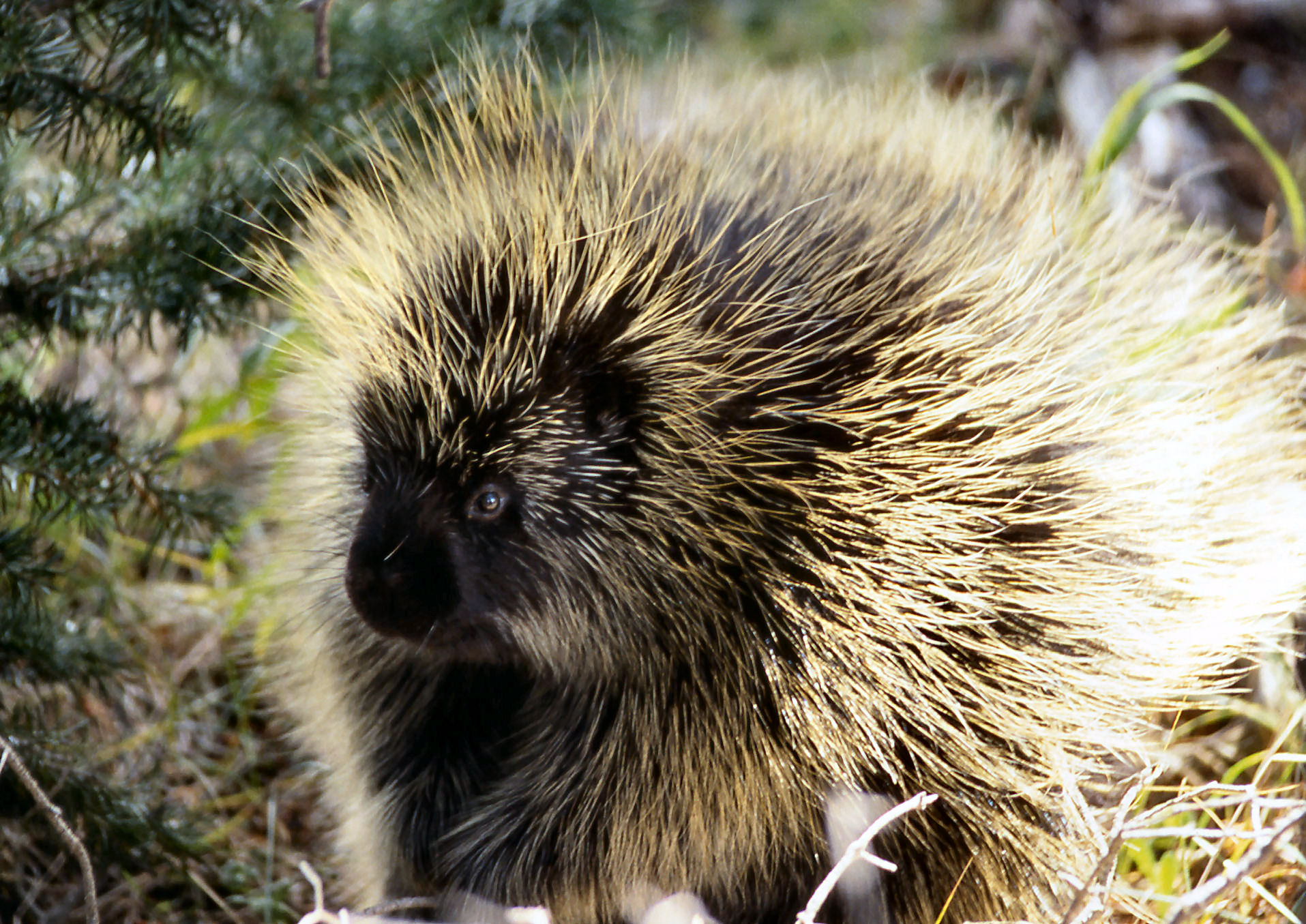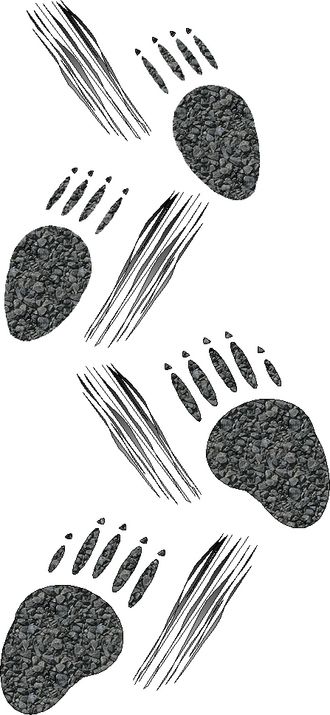Difference between revisions of "Translations:AY Honors/Animal Tracking/Answer Key 2/31/en"
From Pathfinder Wiki
(Importing a new version from external source) |
m (FuzzyBot moved page Translations:AY Honors/Animal Tracking/Answer Key/31/en to Translations:AY Honors/Animal Tracking/Answer Key 2/31/en without leaving a redirect: Part of translatable page "AY Honors/Animal Tracking/Answer Key") |
Latest revision as of 01:43, 16 July 2021
Porcupine
Porcupine (Erethizon dorsatum)
Where found: This animal is usually found in coniferous and mixed forested areas in Canada, Alaska and much of the northern and western United States. They are also found in thicketed areas in shrublands, tundra and deserts as far south as northern Mexico. It makes its den in a hole in a tree or in a rocky area.
Description:' Porcupines are usually dark brown or black, with white highlights. They have a chunky body, a small face, short legs and a short thick tail. Their upper parts are covered with thousands of sharp, barbed hollow spines or quills, which are used for defense. Porcupines do not throw their quills, but the quills detach easily and the barbs make them difficult to remove once lodged in an attacker. The quills are normally flattened against to the body unless the animal is disturbed. The porcupine also swings its quilled tail towards a perceived threat.
Porcupines are mainly active at night; on summer days, they often rest in trees. During the summer, they eat twigs, roots, stems, berries and other vegetation. In the winter, they mainly eat conifer needles and tree bark. They do not hibernate but sleep a lot and stay close to their dens in winter. The strength of the porcupine's defense has given it the ability to live a solitary life, unlike many herbivores.


